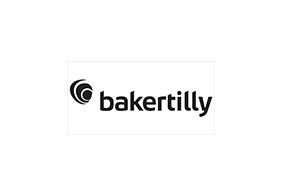Unlocking Success for Your ARPA Funded Projects: Baker Tilly's Approach to Strategic Grant Monitoring and Construction Management
Published 02-16-24
Submitted by Baker Tilly
Authored by Heath Whitaker, Baker Tilly
American Rescue Plan Act overview
Signed into law on March 11, 2021, the American Rescue Plan Act (ARPA) allocated $350 billion in pandemic-relief aid to states, territories, tribes and local governments. The main goal of the ARPA is two-fold; to invest in long term capital projects to enhance a community and increase financial stability for state and local government coming out of COVID-19 to refill reserves and cover temporary operating shortfalls. On the capital project side, the funds can be used for investments in water, sewer, broadband infrastructure and parks and recreation beautification.
Recipients of ARPA funds must obligate the funds by Dec. 31, 2024, and spend the funds by Dec. 31, 2026. Funds not obligated or spent by those two dates must be returned to the Treasury.
Trends we are seeing
In response to this funding opportunity, there have been a number of capital projects set in motion across U.S. communities. This has caused strain on existing teams and resources due to the challenges caused by numerous ARPA funded projects being performed at the same time on very tight schedules to meet the deadlines mentioned previously.
With multiple projects underway, communities and grant recipients are finding it difficult to effectively track progress and costs. Due to this, we are seeing the following trends and challenges in the marketplace:
- Increased project complexity: Varying project sizes and funding needs and numerous stakeholders involved (contractors, city officials, community members, etc.)
- Lack of monitoring: Progress across multiple projects is proving to be difficult to track and financials are unclear
- Inadequate reporting: There’s been increased scrutiny from community stakeholders and a need for capital sustainability and visibility
The importance of planning and monitoring
Community leaders have a responsibility to their constituents and citizens to ensure the success of these projects. Quality construction management plays an important role in overall APRA fund management success, and leaders should ask two questions as the projects are undertaken:
- How are we ensuring ARPA funds are being spent as intended?
- How can we ensure ARPA funds are spent on time to avoid having to return them?
When looking at project success after a grant is awarded, taking a phased approach is highly recommended.
Planning phase
Having a plan in place prior to construction is important. Following these steps allows you to not only set yourself up for success, but also gives the community visibility into project plans and expectations. During the initial planning phase, you should:
- Engage the community and walk them through what the grant means, what the money is going to be used for and how the project effects and/or benefits the community
- Identify risk and make sure that the projects that are chosen can realistically be achieved and completed by of Dec. 31, 2026
- Establish expectations with community stakeholders, project teams, contractors and others involved in the actual construction of the project
Construction monitoring phase
As you likely have numerous projects running simultaneously, the key to success is determined by how well you are able to:
- Track progress across multiple contractors to make sure projects are on schedule
- Forecast cost and schedule across varying complexity of projects
- Mitigate risks either during the planning phase or during the normal construction and project life cycle where potential challenges may arise
Our approach to strategic construction monitoring
At Baker Tilly, we have experienced construction advisory professionals that understand both the planning and monitoring aspects of capital investment projects and are successfully guiding clients through numerous ARPA funded projects.
How do we do it? We understand that data alone is not informative. We have developed a process which takes complex project data from multiple projects and provides a simple and customizable monthly project status report and dashboard to help monitor projects with regard to costs, schedule and potential risk. Additionally, Baker Tilly is there to provide objective narratives of what the data is telling us so that our clients can fully understand where each project is in the construction phase.
With the information gathered from our reports, we’re equipped to identify various potential project risks including structural, environmental and budgetary risks that could cause costs to inflate or inhibit a project from being completed on time. We provide alternative solutions in the event that a project fully funded by the ARPA might not be completed on time by helping you spread the funding across other community stakeholders and private entities. We also have federal grant specialists on the team to ensure all projects meet ARPA guidelines.
For more insights, visit Baker Tilly’s American Rescue Plan Solutions page.

Baker Tilly
Baker Tilly
Baker Tilly is a leading advisory, tax and assurance firm, providing clients with a genuine coast-to-coast and global advantage in major regions of the U.S. and in many of the world’s leading financial centers – New York, London, San Francisco, Los Angeles, Chicago and Boston. Baker Tilly Advisory Group, LP and Baker Tilly US, LLP (Baker Tilly) provide professional services through an alternative practice structure in accordance with the AICPA Code of Professional Conduct and applicable laws, regulations and professional standards. Baker Tilly US, LLP is a licensed independent CPA firm that provides attest services to its clients. Baker Tilly Advisory Group, LP and its subsidiary entities provide tax and business advisory services to their clients. Baker Tilly Advisory Group, LP and its subsidiary entities are not licensed CPA firms.
Baker Tilly Advisory Group, LP and Baker Tilly US, LLP, trading as Baker Tilly, are independent members of Baker Tilly International, a worldwide network of independent accounting and business advisory firms in 143 territories, with 43,500 professionals and a combined worldwide revenue of $5.62 billion. Visit bakertilly.com or join the conversation on LinkedIn, Facebook and Instagram.
More from Baker Tilly

